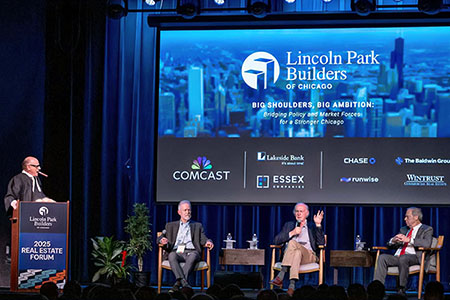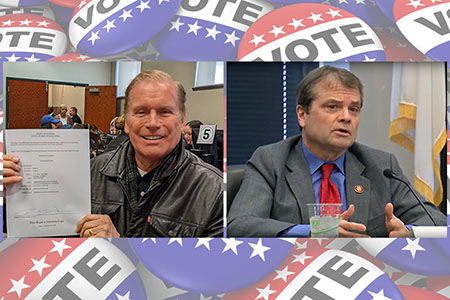Author of Illinois Condo Laws says MTCA in danger of being a ‘runaway board’
Feb. 5, 2008 – He has more than 40 patents, mostly related to cell regeneration, repair of human tissue, and curing diseases to vital organs. He’s written 15 books and more than 160 professional publications. He’s also the co-author of the 1983 amendments to The Illinois Condominium Property Act, considered to this day to be the Bible for condominiums. He wrote it for a young Illinois legislator, Ellis Bernard Levin, who was a state representative from 1977 to 1995. Levin is currently an attorney for Marina Towers Condominium Association.
The path to becoming an expert on condominium law started with Rudd living in a condominium. He started doing legal work for his homeowners association. That eventually grew into a law firm that at one time had more than 2,000 HOA clients. In the early 1980s, while Rudd was still living in Schaumburg, he read about changes Levin was proposing to the Illinois Condominium Property Act. Rudd wrote to Levin, saying the changes were “the stupidest thing I had ever heard of” and offered alternatives. Levin not only took his suggestions and made changes, but he asked Rudd if there were any other problems with condominiums that could be fixed through legislation. Rudd’s law firm combed through hundreds of lawsuits and other issues they had encountered over the years. Levin used Rudd’s suggestions to redraft 87 amendments, of which 85 percent were voted into law by Illinois legislators. Levin not cut out to be a politician Rudd, who is a conservative Republican, describes Levin as a very liberal Democrat. But he was impressed with Levin, offering him a job with Rudd’s law firm in Schaumburg. Levin worked for Rudd & Associates from around 1988 to 1991. “Ellis was a very brilliant attorney,” says Rudd. “He was extremely good at writing briefs. But as a politician, he was not effective.” One of the problems, believes Rudd, was charisma. “Ellis had no charisma. He was not an attractive guy.” Representing his constituents in Lake View, Lincoln Park, and Uptown along Chicago’s lakefront, Levin was an early advocate of gay and lesbian rights, but this was unpopular with more conservative constituents, and kept him from the mainstream of his own political party. Rudd says, “He did a good job of carrying the torch when no one else would carry it.” On its web site, the Chicago Gay and Lesbian Hall of Fame calls Levin a “Friend of the Community.”
Another problem Levin had, says Dr. Rudd, is that for a politician, he was too ethical. “He was not a ‘money person.’ He would have benefits that raised four or five hundred dollars.” Other candidates, says Rudd, could swallow their pride and accept money from a wider variety of sources. “[Levin] wasn’t willing to play the game and ultimately that killed him.” How did Levin hook up with Marina City? At its peak, Rudd’s law firm represented more than 2,000 homeowner associations. He does not recall details, but he believes that Marina Towers Condominium Association was referred to his firm – or to Levin, but due to the reputation of Rudd & Associates. According to Rudd, Levin’s weakness in private practice is, “He cannot control his clients because he does not have a commanding presence even though his legal ability is very good.”
Retired, only working 16 hours per day Rudd, 67, is currently Chief Scientist, Director of Intellectual Property, and Corporate Secretary for Regenetech Inc., a Houston, Texas company developing adult stem cell and tissue regeneration technology. Regenetech works with NASA on scientific studies, including techniques for keeping the tissue-regenerating cells from turning cancerous. The research is applied to cell and tissue regeneration for the heart and vascular system, pancreas, prostate, liver, skin, lung and blood. He managed his own law firm for 15 years. He also managed several computer-related companies. He was once a Senior Investigator for Resolution Trust Corporation (now known as the FDIC) and one of his investigations was Whitewater Development Corporation. His work, obviously, has the goal of increasing the human life span. He believes that soon, it will be common for people to live more than 100 years, perhaps as long as 125 years. With virtually no end in sight, as the aging process is stopped and even reversed. He is motivated by tragedy in his own family. His wife, also an attorney, died of breast cancer. His 33-year-old son is comatose, following a motorcycle accident. He is hopeful that his company’s research will someday regenerate brain tissue. He is quick to point out these are adult stem cells. Due to their normal, rapid regeneration, Rudd says the more controversial embryonic stem cells do not work. |















